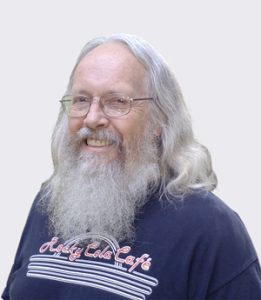CV’s First Inhabitants – The Abandonment of Wiqangna
As I’ve written before, we know next to nothing about our local Native-American village other than it did exist. I’ve been using William McCawley’s fine book “The First Angelinos” as reference, and filling in some blanks with my own scattered knowledge.
When the Europeans first touched North America, European diseases swept ahead of explorers, killing untold numbers of natives, including in the Los Angeles area, the home of the Tongva people. When the San Gabriel Mission was founded in 1771, the natives, still beset by waves of epidemic, began to leave their villages, either to labor for the Spanish or to flee. The following is a fictionalized, first person account of the last days of Wiqangna, seen through the eyes of an old man in the year 1797.
“I was born in my village of Wiqangna, in the valley we call ‘Big Rocks’ (Crescenta Valley), many years before the Spanish came. I was a young man when the priests arrived to build the Mission (San Gabriel), and I was in the group that fought them at the river crossing. I came back to Wiqangna and told the village about the Spanish. Many of the other young men traveled to the east to see the strange men and hear about their new religion. Many of them got in trouble there, and came back here to hide from the soldiers.

president of the Historical Society
of the Crescenta Valley and loves local history. Reach him at
lawlerdad@yahoo.com.
“When they came back, some of them were sick and more sickness went through the village, and some died. We were afraid of the Spanish at first, but they visited Wiqangna and the priests were very friendly. After that a couple of our young men went to the Mission at the invitation of the priests. Word came that they liked it there, and that they weren’t coming back. I couldn’t understand that, as I liked it here.
“A few years later, some soldiers who were traveling north camped near our village. That night two of them came to one of our houses and tried to take a woman who lived there. We men fought the soldiers and made them leave, but in the morning they came back with more soldiers. They lashed us with whips and threatened to kill us. Two days later, a priest from the Mission came and gave us gifts. He said the soldiers were bad, and that he was angry with them. He wanted us to follow him back to the Mission where we would be safe. Several of our young women did, as they were afraid.
“I do remember when the Shaman Toypurina came to our village to look for warriors to fight the Spanish. None of our people joined her, but she did get some from Tujungna just up the trail. In the next years a few men came to our village who had run away from the Mission. They couldn’t stay here, as we knew the soldiers would follow, so they hid up in the hills to the south (Verdugo Mountains) and stole the occasional cow or horse for their food from the Spanish.
“Over the years, more of us died from disease. Nearly all of the young people went either to the Mission or to the new town of Los Angeles, what had been the village of Yangna, to work for the Spanish. The few young people who didn’t join the Spanish fled north to the big Central Valley. They said there was no future for them here.
“Now there is only me and three old women living in Wiqangna. We can hardly gather enough food to eat. We heard there was a new mission to the north, San Fernando Mission. Today a priest came from that new Mission with two soldiers. He told us that it was time for us to go there, that it was not safe here, and they needed our help in their fields. We, the last four Wiqangnans, gathered our things and went with them. I burned our houses when we left. We were never coming back. Our Gods were obviously dead, and it was time to follow the new God.”
